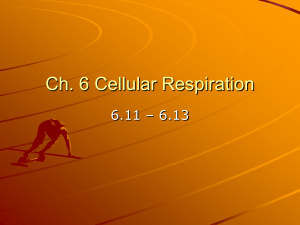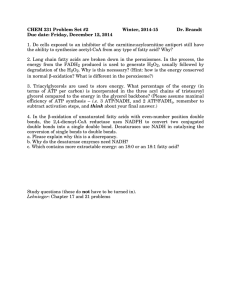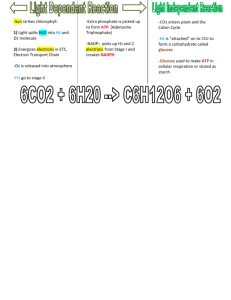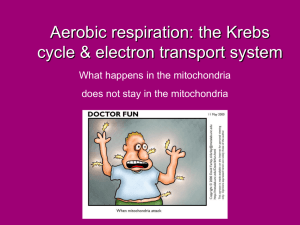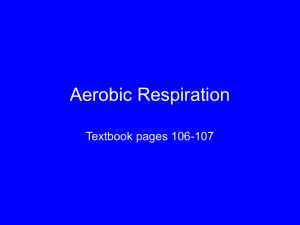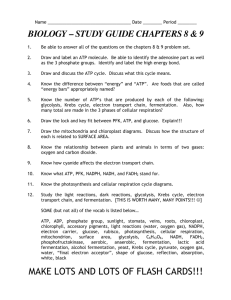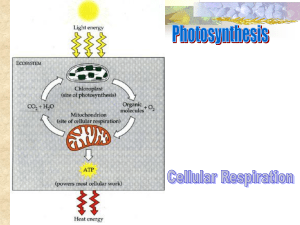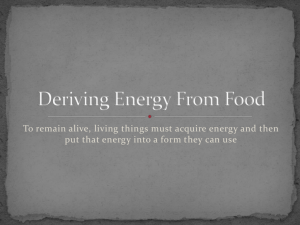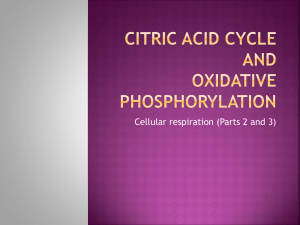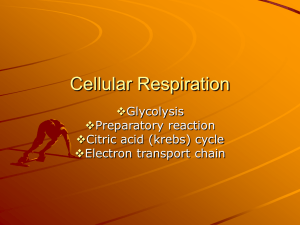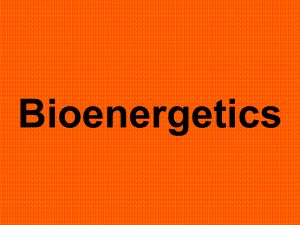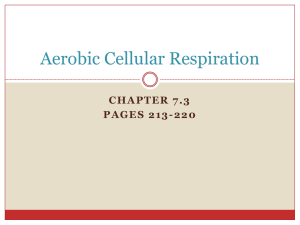Learning Objectives Chapter 3 Human Biology
advertisement
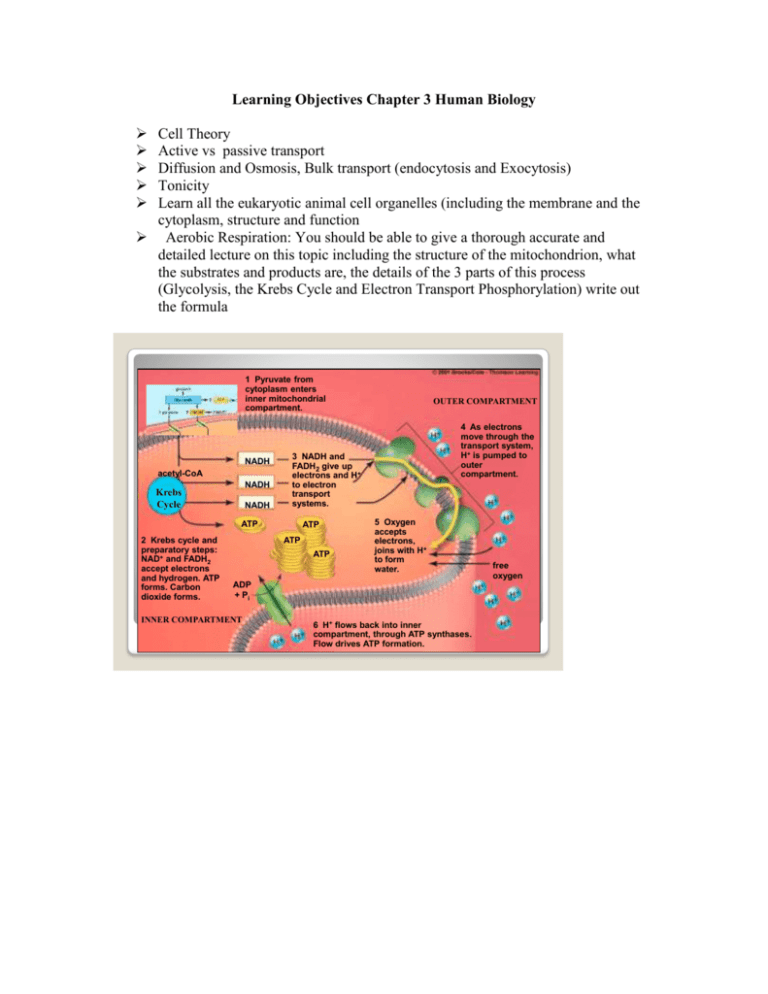
Learning Objectives Chapter 3 Human Biology Cell Theory Active vs passive transport Diffusion and Osmosis, Bulk transport (endocytosis and Exocytosis) Tonicity Learn all the eukaryotic animal cell organelles (including the membrane and the cytoplasm, structure and function Aerobic Respiration: You should be able to give a thorough accurate and detailed lecture on this topic including the structure of the mitochondrion, what the substrates and products are, the details of the 3 parts of this process (Glycolysis, the Krebs Cycle and Electron Transport Phosphorylation) write out the formula 1 Pyruvate from cytoplasm enters inner mitochondrial compartment. NADH acetyl-CoA NADH Krebs Cycle NADH 4 As electrons move through the transport system, H+ is pumped to outer compartment. 3 NADH and FADH2 give up electrons and H+ to electron transport systems. ATP 2 Krebs cycle and preparatory steps: NAD+ and FADH2 accept electrons and hydrogen. ATP forms. Carbon dioxide forms. OUTER COMPARTMENT ATP ATP ATP 5 Oxygen accepts electrons, joins with H+ to form water. ADP + Pi INNER COMPARTMENT 6 H+ flows back into inner compartment, through ATP synthases. Flow drives ATP formation. free oxygen
